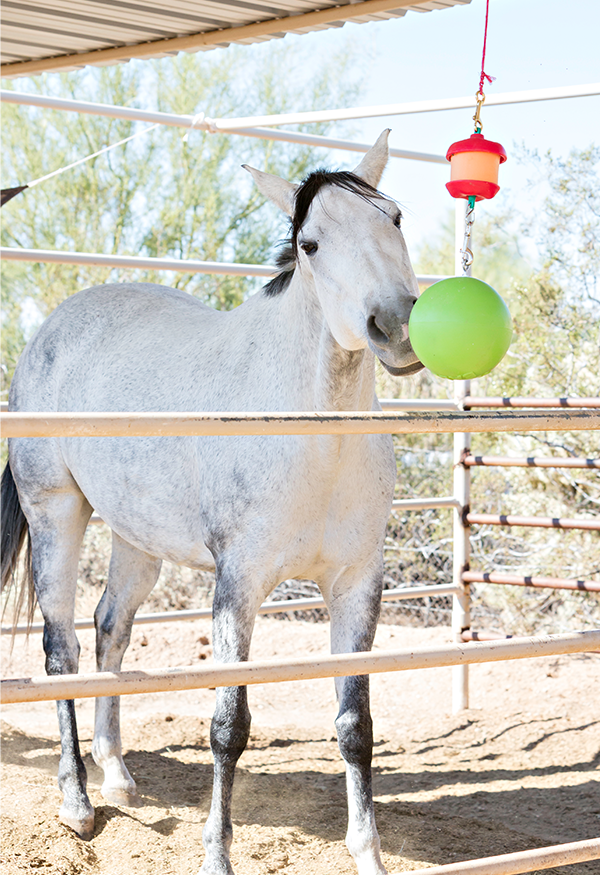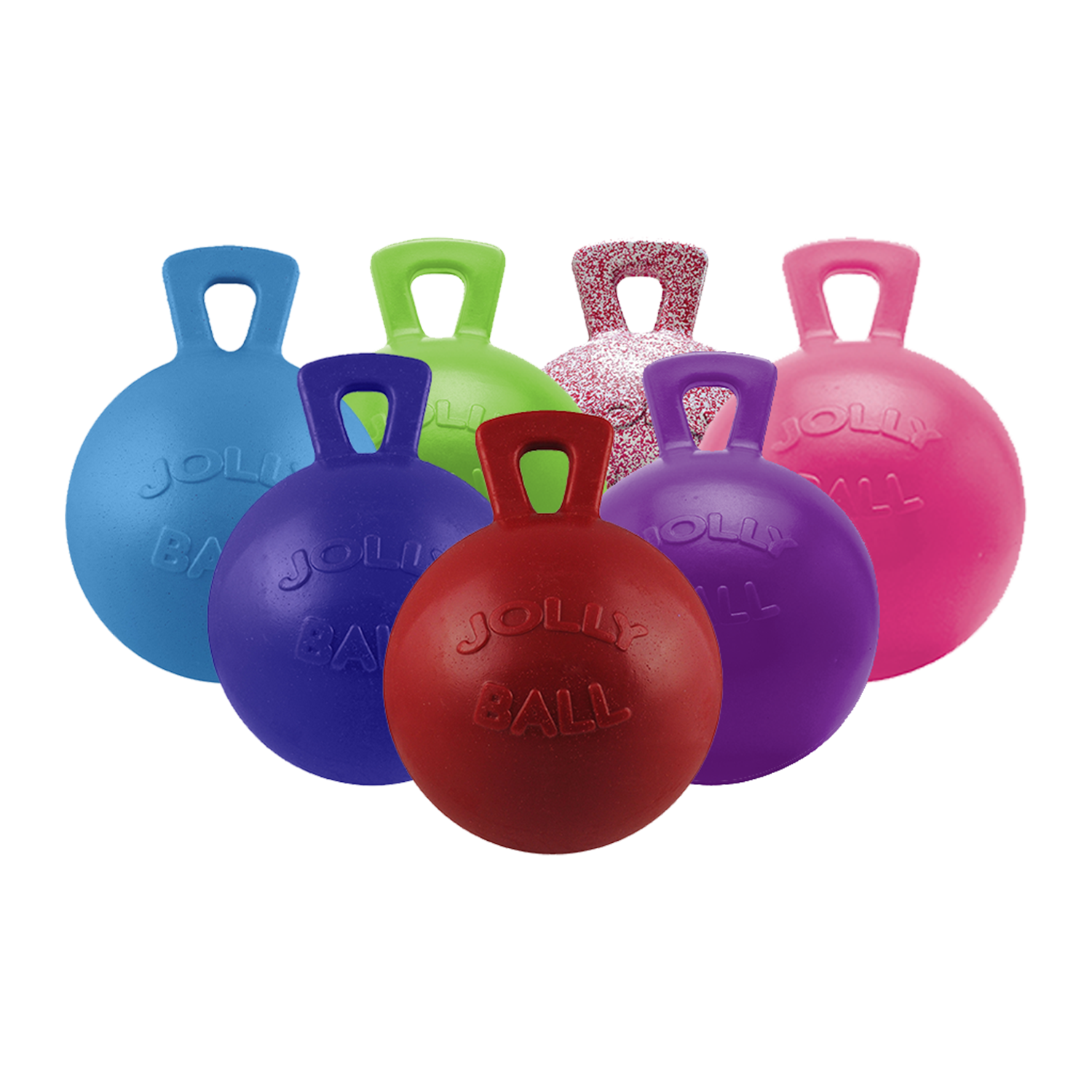Your Cart is Empty
FREE Economy Shipping on orders over $75
Menu

FREE Economy Shipping on orders over $75
Linking Physical Health with Mental Health: How Boredom Affects the Body in Horses
July 18, 2025 3 min read

When we think about equine health, we often focus on the physical aspects like lameness, joint issues, digestive problems, and many others. But horses, like humans, are deeply affected by their mental and emotional states. One often overlooked factor is boredom,and the physical consequences can be more significant than you may realize.
Boredom in Horses: More Than Just Restlessness
Horses are intelligent, social animals designed to roam, graze, and interact with their environment throughout the day. When they're confined to a stall for long hours, experience limited exercise/turnout, or lack stimulation their mental stress builds and manifests in both their behavior and body.
Common signs of boredom include:
-
Pacing or stall walking
-
Cribbing or weaving
-
Excessive pawing or biting
-
Lethargy or depression

While these may seem like behavioral quirks, they might be signs of distress that’s deeper than meets the eye, and over time that mental stress can affect the health of the horse’s joints, gut, immune system, and overall soundness.
According to Dr. Kirsty Husby, DVM, MS, DACVS (LA), Senior Technical Service Veterinarian, PetVivo Animal Health, “It is generally considered that horses need at least one hour of exercise or turnout per day, though ideally we recommend more if possible. Without adequate physical and mental stimulation we see increased incidence of gastric ulcers and colic, behavioral vices like cribbing or weaving, muscle tension, and even compromised immune function. It’s important to understand that a horse’s environment and mental state are not separate from physical health.”
The Physical Impact of Mental Stress
The mental and emotional wellness of your horse are directly tied to their physical health. Stress-related behaviors such as weaving or cribbing can place strain on the neck, spine, or limbs, potentially leading to long-term musculoskeletal issues. Cribbing or windsucking is also known to increase the risk for certain types of colic. Chronic boredom may also:
-
Weaken immune responses
-
Disrupt digestion or cause ulcers
-
Reduce circulation and mobility
-
Worsen joint stiffness, especially in aging or athletic horses
When horses are confined and under-stimulated, even temporarily, their risk of injury and inflammation increases, especially in joints already prone to wear and tear.

Enrichment is Preventative Medicine
Supporting mental health isn’t just good practice, it’s part of whole-horse care. Enrichment strategies can improve both psychological and physical outcomes, including:
-
Regular turnout with movement space
-
Free-choice forage and slow feeders
-
Toys or interactive stall elements
-
Groundwork, liberty play, or hand-walking
-
Social time with other horses
These small changes can reduce the likelihood of stress-related injuries and support healthier biomechanics, circulation, and mood.
“Movement is like medicine for horses. Appropriate training and exercise supports joint health, maintains soft tissue integrity, and helps prevent issues in other parts of the body. Additionally mental enrichment like turnout with visual stimulation, social interaction, or even simple foraging activities can reduce stress and mental health. In horses recovering from illness or injury, my preferred approach always includes a balance of physical movement and mental engagement because the best healing occurs when both physical and mental health are supported.” - Dr. Kirsty Husby, DVM, MS, DACVS (LA), Senior Technical Service Veterinarian, PetVivo Animal Health
Regenerative Therapies for Stress-Exacerbated Joint Issues
While enrichment helps prevent many issues, some horses will still develop inflammation or degeneration due to stress or limited mobility. For these cases, regenerative therapies like PRP (platelet-rich plasma) and Spryng intra-articular joint injections can offer added support.
-
PRP delivers concentrated growth factors to help support healing.
-
Spryng promotes joint health via a naturally-derived, collagen-elastin-based matrix that supports biomechanics and may promote healthy synovial remodeling over time.
These tools are not a replacement for movement or enrichment, but when used appropriately, they can help extend comfort, reduce reliance on long-term NSAIDs, and improve quality of life for horses recovering from stall rest, performance injury, or chronic joint conditions.

Big Picture Takeaway: The Mind-Body Connection in Equine Care
A horse’s mental well-being is inseparable from their physical health. Whether managing a young athlete, a recovering post-op case, or a senior horse, recognizing boredom and emotional stress as medical considerations allows for more proactive, holistic care.
As veterinary medicine continues to evolve, bridging physical and mental wellness can keep horses moving, feeling, and living better.
Interested in how regenerative tools like PRP or Spryng may help support your horse’s mobility? Learn more atpetvivoanimalhealth.com.
HAVING A JOLLY GOOD TIME?
Keep the good times going! Sign up to receive monthly treats directly to your inbox!

TAKE 10% OFF
Signup for emails and take 10% off your first order!

















